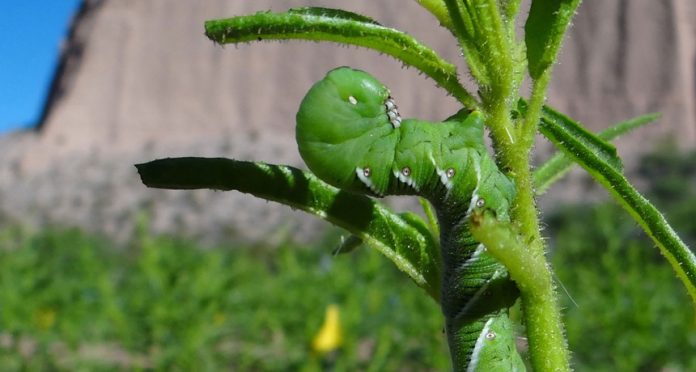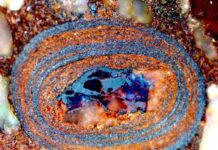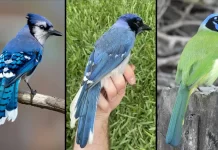Tobacco hornworm caterpillars were proven to use nicotine as a defense against their major predator by researchers from the Max Planck Institute for Chemical Ecology in Jena, Germany, led by Ian T. Baldwin.
Tobacco hornworm caterpillars (Manduca sexta) feed primarily on wild tobacco (Nicotiana attenuate).
The researchers bred tobacco plants that suppressed the expression of a gene in the tobacco hornworm caterpillars that is normally turned on by the ingestion of nicotine. Tobacco hornworm caterpillars that ate the genetically altered tobacco were eaten four times more often by their major predator, the wolf spider (Camptocosa parallela), than the caterpillars that ate normal tobacco.
The researchers found that the tobacco hornworm caterpillar’s consumption and natural processing of nicotine from tobacco plants allow the caterpillars to produce a defense against predation by wolf spiders. A small amount of nicotine is stored in the hemolymph of the caterpillar and is ejected through the caterpillar’s spiracles in a puff of what the scientists call toxic bad breath. Hemolymph is the insect version of lymphatic fluid. Insects do not have lungs and receive air through pores in their sides called spiracles.















